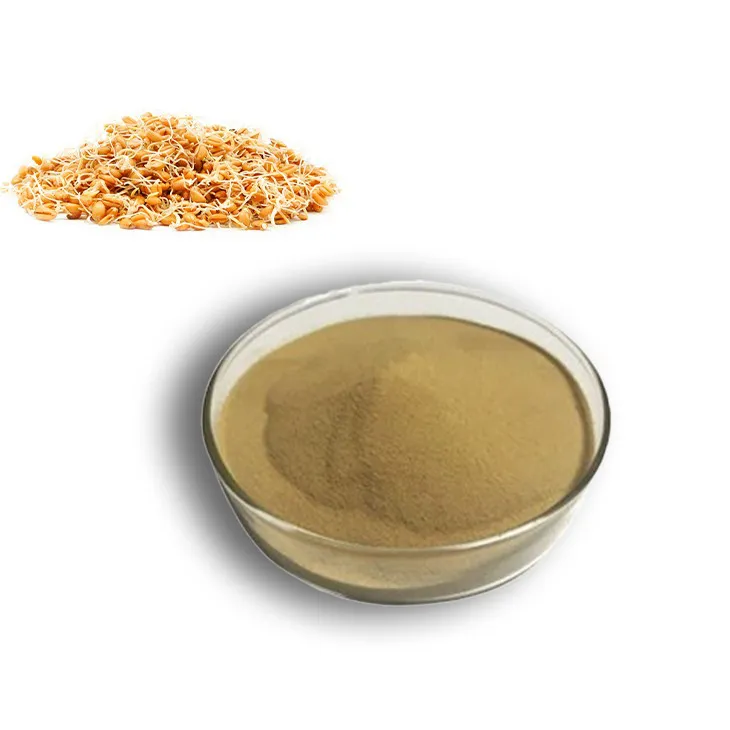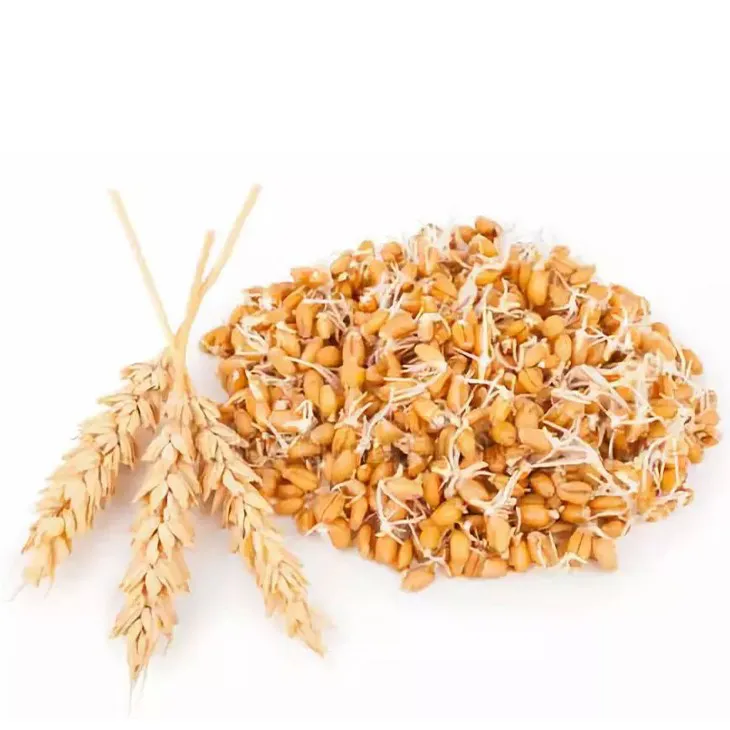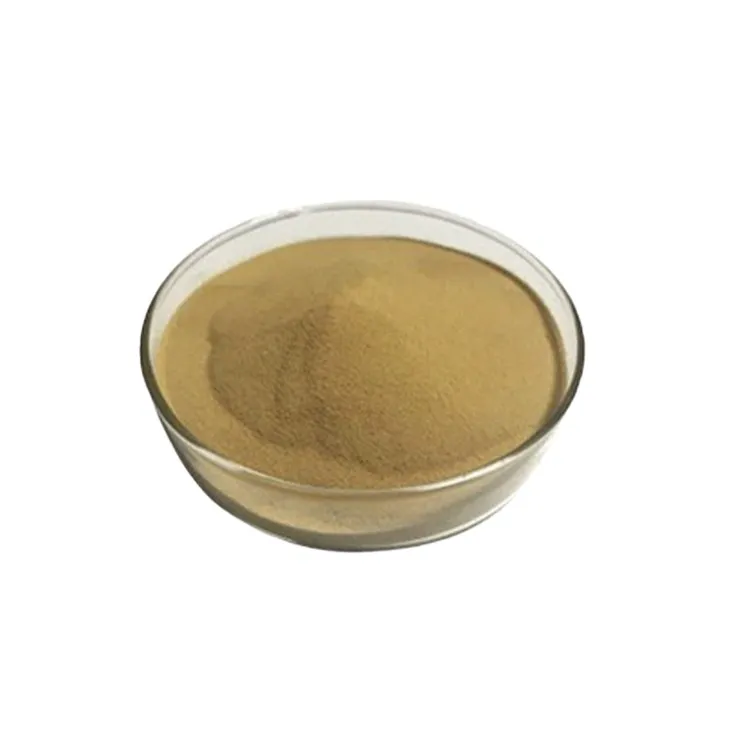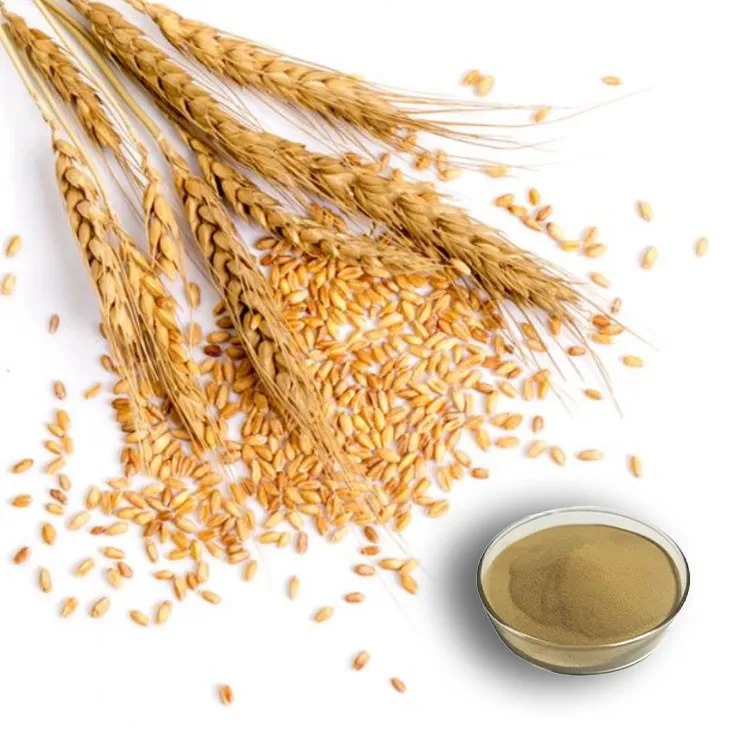- 0086-571-85302990
- sales@greenskybio.com
How to Start a Business in the Highly Profitable Wheat Germ Extract Industry.
2024-12-20

1. Introduction to the Wheat Germ Extract Industry
The Wheat Germ Extract industry has emerged as a highly profitable sector in recent years. Wheat germ, which is the embryo of the wheat kernel, is rich in nutrients such as vitamins, minerals, and healthy fats. Extracts from wheat germ are used in a variety of applications, including food supplements, cosmetics, and pharmaceuticals. The increasing consumer awareness about health and wellness has led to a growing demand for Wheat Germ Extract - based products, making it an attractive business opportunity.

2. Understanding the Extraction Process
Thorough knowledge of the extraction process is crucial for ensuring product quality. The extraction of wheat germ extract typically involves several steps:
2.1. Raw Material Selection
Start with high - quality wheat germ. Look for wheat germ that is fresh, free from contaminants, and has a high nutrient content. The source of the wheat germ can also impact the quality of the extract. For example, organically grown wheat may be preferred for certain markets.
2.2. Pre - treatment
Before extraction, the wheat germ may need to be pre - treated. This can include processes such as cleaning, drying, and milling to break down the germ into a more suitable form for extraction.
2.3. Extraction Methods
There are different extraction methods available, such as solvent extraction and supercritical fluid extraction.
- Solvent extraction: This is a common method where solvents like hexane or ethanol are used to dissolve the active compounds in the wheat germ. However, it is important to ensure that all solvent residues are removed from the final product to meet safety standards.
- Supercritical fluid extraction: Using supercritical carbon dioxide, this method offers advantages such as being more environmentally friendly and producing a purer extract. But it requires specialized equipment and higher initial investment.
2.4. Purification and Concentration
After extraction, the extract may need to be purified to remove impurities and then concentrated to increase the potency of the active compounds.

3. Navigating the Regulatory Environment
The regulatory environment plays a significant role in the wheat germ extract business and cannot be overlooked. Different regions and countries have varying regulations regarding the production, labeling, and marketing of food supplements, cosmetics, and pharmaceuticals containing wheat germ extract.
3.1. Food Supplement Regulations
In the case of food supplements, regulations may govern aspects such as ingredient safety, dosage claims, and labeling requirements. For example, in the European Union, food supplements must comply with the Food Supplements Directive, which requires proper identification of ingredients, declaration of nutritional values, and compliance with safety limits for substances.
3.2. Cosmetic Regulations
When it comes to cosmetics, regulations focus on product safety, ingredient restrictions, and labeling. In the United States, the Food and Drug Administration (FDA) regulates cosmetics under the Federal Food, Drug, and Cosmetic Act. Cosmetics containing wheat germ extract must be free from harmful substances and properly labeled with ingredients.
3.3. Pharmaceutical Regulations
If the wheat germ extract is intended for use in pharmaceuticals, the regulatory requirements are even more stringent. Pharmaceutical products must go through extensive clinical trials to prove their efficacy and safety. In addition, manufacturing facilities need to meet strict Good Manufacturing Practice (GMP) standards.

4. Product Differentiation
In the highly competitive wheat germ extract industry, product differentiation is key. Developing unique selling propositions can help a business stand out from the competition.
4.1. Organic Wheat Germ Extract
With the increasing demand for organic products, offering organic wheat germ extract can be a major differentiator. Organic extracts are produced from wheat germ that is grown without the use of synthetic pesticides, fertilizers, or genetically modified organisms. This appeals to consumers who are conscious about their health and the environment.
4.2. Specialized Formulations
Another way to differentiate is through specialized formulations. For example:
- High - potency extracts for those who require a concentrated dose of the active compounds.
- Combination products that include other complementary ingredients such as vitamins or herbs.
- Targeted products designed for specific consumer groups, like athletes or the elderly.
4.3. Quality and Purity
Emphasizing high - quality and pure wheat germ extract can also be a selling point. This can be achieved through strict quality control measures during the extraction process, such as using high - grade raw materials and advanced purification techniques.

5. Building Relationships with Distributors and Retailers
Establishing strong relationships with distributors and retailers is essential for the success of a wheat germ extract business.
5.1. Finding the Right Distributors
Look for distributors who have experience in the health and wellness industry and a wide network of contacts. They should have a good understanding of the market and be able to effectively promote and distribute your wheat germ extract products. Research potential distributors, attend industry trade shows, and network with industry professionals to find suitable partners.
5.2. Working with Retailers
Retailers play a crucial role in getting your products in front of consumers. Develop relationships with different types of retailers, including health food stores, pharmacies, and online retailers. Provide them with product information, marketing materials, and support to ensure that they can effectively sell your products. Consider offering incentives such as volume discounts or exclusive product lines to encourage retailers to carry your wheat germ extract products.
5.3. Communication and Support
Maintain regular communication with your distributors and retailers. Keep them informed about new product launches, promotions, and any changes in the business. Provide them with technical support, such as answering questions about product usage and benefits. A good relationship based on mutual trust and support will help to ensure the long - term success of your distribution and retail channels.
6. Investing in Research
Investing in research is vital for exploring new applications of wheat germ extract in sectors like cosmetics and pharmaceuticals.
6.1. Cosmetic Research
In the field of cosmetics, research can focus on the potential of wheat germ extract for skin health. For example, studies can be conducted to explore its antioxidant properties and how it can be used in anti - aging creams, moisturizers, or sunscreens. Discovering new ways to incorporate wheat germ extract into cosmetic formulations can open up new market opportunities.
6.2. Pharmaceutical Research
Pharmaceutical research on wheat germ extract can aim to identify and develop new drugs or therapeutic agents. Scientists can study its bioactive compounds to understand their potential in treating diseases such as cancer, heart disease, or diabetes. Clinical trials may be necessary to prove the efficacy and safety of wheat germ extract - based pharmaceutical products.
6.3. Collaboration and Partnerships
Consider collaborating with research institutions, universities, or other companies in the industry. These partnerships can provide access to expertise, facilities, and funding for research projects. For example, a small wheat germ extract business can partner with a university research lab to conduct pre - clinical studies on the potential health benefits of their extract.
7. Marketing and Branding
Effective marketing and branding are necessary to create awareness and drive sales of your wheat germ extract products.
7.1. Defining Your Brand
Develop a brand identity that reflects the values and unique selling points of your wheat germ extract products. This includes choosing a brand name, logo, and brand message that resonate with your target market. For example, if your product is focused on organic and high - quality extracts, your brand can convey a sense of purity, health, and environmental responsibility.
7.2. Online Marketing
In today's digital age, online marketing is crucial. Create a professional website for your business that showcases your products, provides product information, and enables customers to purchase online. Use social media platforms such as Facebook, Instagram, and Twitter to engage with your audience, share product news and health tips related to wheat germ extract, and run targeted advertising campaigns.
7.3. Offline Marketing
Don't neglect offline marketing strategies. This can include attending industry trade shows, distributing brochures and product samples at health events, and partnering with local health influencers or bloggers to promote your products.
8. Conclusion
Starting a business in the highly profitable wheat germ extract industry requires a comprehensive approach. Understanding the extraction process, navigating the regulatory environment, differentiating your product, building relationships with distributors and retailers, investing in research, and implementing effective marketing and branding strategies are all essential elements for success. By carefully considering each of these aspects and continuously adapting to the changing market conditions, entrepreneurs can establish a thriving business in this promising industry.
FAQ:
What are the main steps in the wheat germ extract extraction process?
The extraction process typically involves several key steps. First, the wheat germ needs to be separated from the wheat kernel. Then, appropriate solvents may be used to extract the bioactive compounds from the wheat germ. After extraction, purification steps are often carried out to remove impurities and obtain a high - quality extract. Different extraction methods may vary in details, but these are the general aspects of the process.
How important is regulatory compliance in the wheat germ extract business?
Regulatory compliance is extremely important. It directly affects both production and sales. Regulatory requirements ensure the safety and quality of the wheat germ extract products. For example, there may be regulations regarding the use of solvents in the extraction process, labeling requirements for the final product, and quality standards. Non - compliance can lead to legal issues, product recalls, and damage to the business's reputation.
What are some effective ways to achieve product differentiation in the wheat germ extract industry?
One way is to focus on the origin of the wheat germ. For instance, using wheat germ from a specific region known for high - quality wheat can be a selling point. Another is to develop specialized formulations, like those targeted at specific health needs or consumer groups. Organic certification is also a powerful form of differentiation, as consumers are increasingly interested in organic products. Additionally, offering different forms of the extract, such as powder, liquid, or capsules, can set a product apart from competitors.
How can one build good relationships with distributors and retailers in this industry?
Firstly, providing high - quality products consistently is crucial. This builds trust. Offering competitive pricing and favorable terms for distributors and retailers also helps. Good communication is essential, including providing them with product information, marketing support, and being responsive to their needs. Attending industry trade shows and events together can also strengthen the relationship. Offering incentives for promoting the product, such as volume - based bonuses, can be effective as well.
What new applications of wheat germ extract are being explored in the cosmetics and pharmaceuticals sectors?
In the cosmetics sector, wheat germ extract is being explored for its antioxidant and skin - nourishing properties. It may be used in anti - aging creams, moisturizers, and skin - brightening products. In pharmaceuticals, research is focused on its potential health - promoting effects, such as its role in improving cardiovascular health or as an ingredient in dietary supplements. Some studies are also looking into its anti - inflammatory properties for use in treating certain diseases.
Related literature
- The Potential of Wheat Germ Extract in Nutraceuticals"
- "Wheat Germ Extract: From Farm to Cosmetic Applications"
- "Regulatory Aspects of Wheat Germ Extract - Based Products"
- ▶ Hesperidin
- ▶ citrus bioflavonoids
- ▶ plant extract
- ▶ lycopene
- ▶ Diosmin
- ▶ Grape seed extract
- ▶ Sea buckthorn Juice Powder
- ▶ Beetroot powder
- ▶ Hops Extract
- ▶ Artichoke Extract
- ▶ Reishi mushroom extract
- ▶ Astaxanthin
- ▶ Green Tea Extract
- ▶ Curcumin Extract
- ▶ Horse Chestnut Extract
- ▶ Other Problems
- ▶ Boswellia Serrata Extract
- ▶ Resveratrol Extract
- ▶ Marigold Extract
- ▶ Grape Leaf Extract
- ▶ blog3
- ▶ blog4
- ▶ blog5
-
Pure 85% Tomentil Extract.
2024-12-20
-
Saponin Extract
2024-12-20
-
Tormentil Extract
2024-12-20
-
Chaste Berry Extract
2024-12-20
-
Chasteberry Extract
2024-12-20
-
Agaricus Blazei Extract
2024-12-20
-
Black Pepper Extract
2024-12-20
-
Citrus Aurantii Extract
2024-12-20
-
Acerola Extract
2024-12-20
-
Avocado Extract Powder
2024-12-20
-
Kupilu Extract
2024-12-20





















